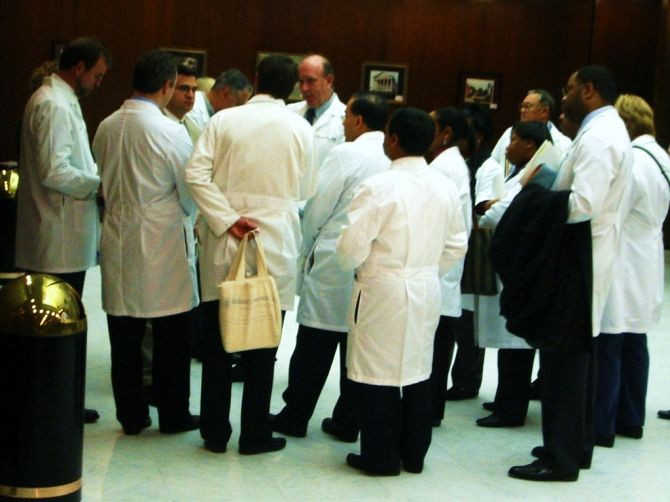Is Your Doctor Lying to You? 10% of Doctors Admit to Lying, and White Male Doctors Lie The Most

A new poll revealed that one in 10 doctors have deliberately lied to a patient in 2011, according to a new survey published on Thursday in the journal Health Affairs.
It was also shown that more than half of the 1,900 doctors surveyed had “described a patient’s prognosis in a more positive manner than warranted” and nearly 20 percent of doctors admitted to not disclosing a medical mistake due to fear of a malpractice lawsuit.
About a third of physicians did not completely agree with disclosing medical errors, and around 40 percent of doctors said they don’t believe that they should disclose financial ties to drug or device companies.
Researchers from the Mongan Institute for Health Policy at Massachusetts General Hospital also found that male doctors and physicians who graduated from medical schools outside of the United States and Canada were more likely to tell lies to their patients.
Women and minority doctors were more likely than white male doctors to report being honest with their patients, and researchers suggested that this might be because women and minority doctors feel more compelled to follow professional standards of conduct because they have entered a profession that has been in the past largely dominated by white males.
“General surgeons and pediatricians were most likely to completely agree about needing to disclose all serious medical errors to patients, while cardiologists and psychiatrists were least likely to report this attitude,” the authors concluded.
Although general surgeons were most likely to report that they’ve lied to patients in the past, but they were more likely to report that they inform patients of any medical errors or mistakes.
Study author Dr. Lisa Iezzoni said that the survey results suggest that the needs and desires of patients may not always be their health provider’s top priority.
"Patients who do not get the full story might not be able to make an informed choice about the best course of action for their care," Iezzoni, a professor of medicine at Harvard Medical School, said in a journal news release. "Until all physicians take a frank and open approach to communication, it will be very difficult to enact patient-centered care more broadly."
Published by Medicaldaily.com



























